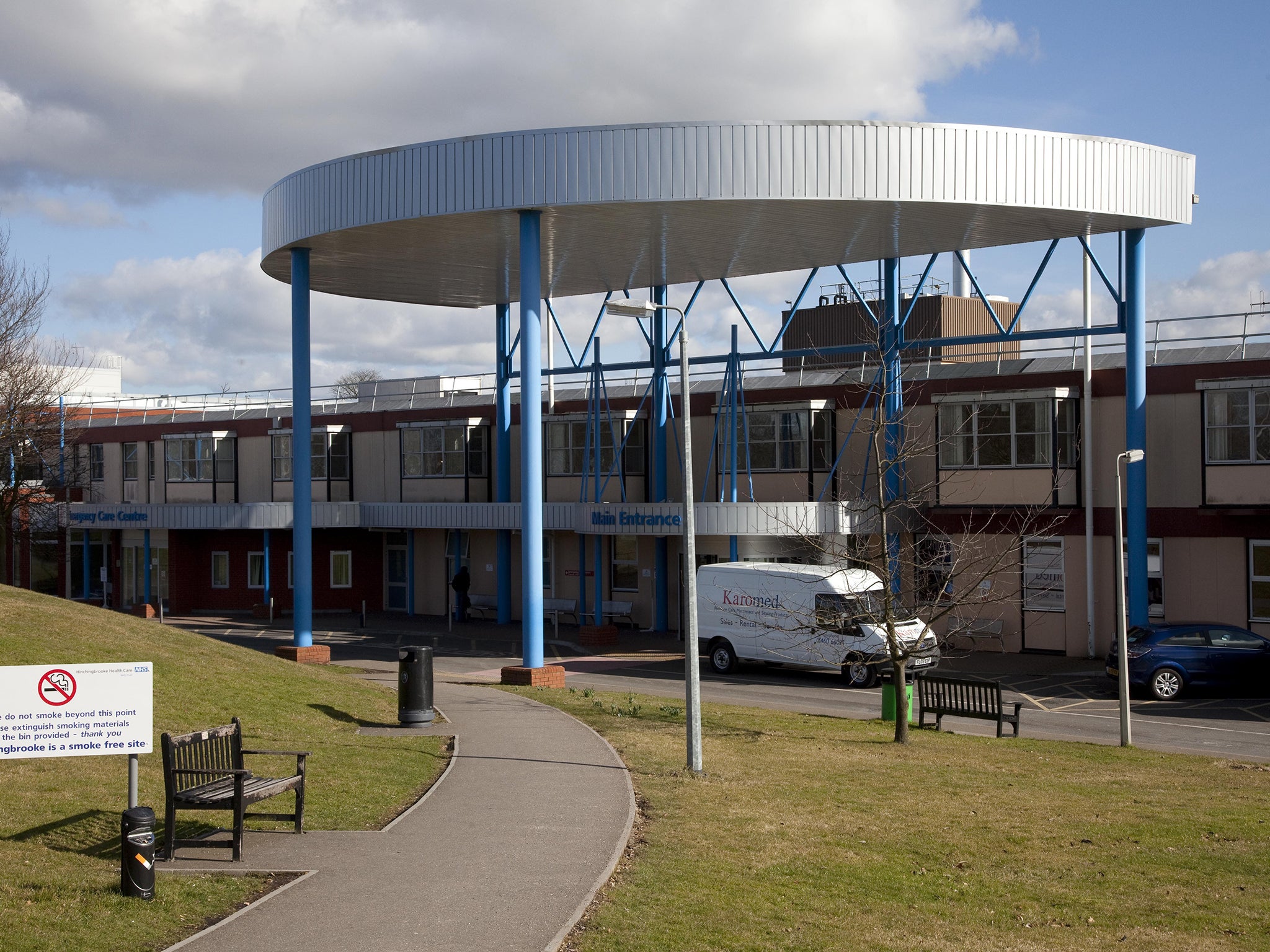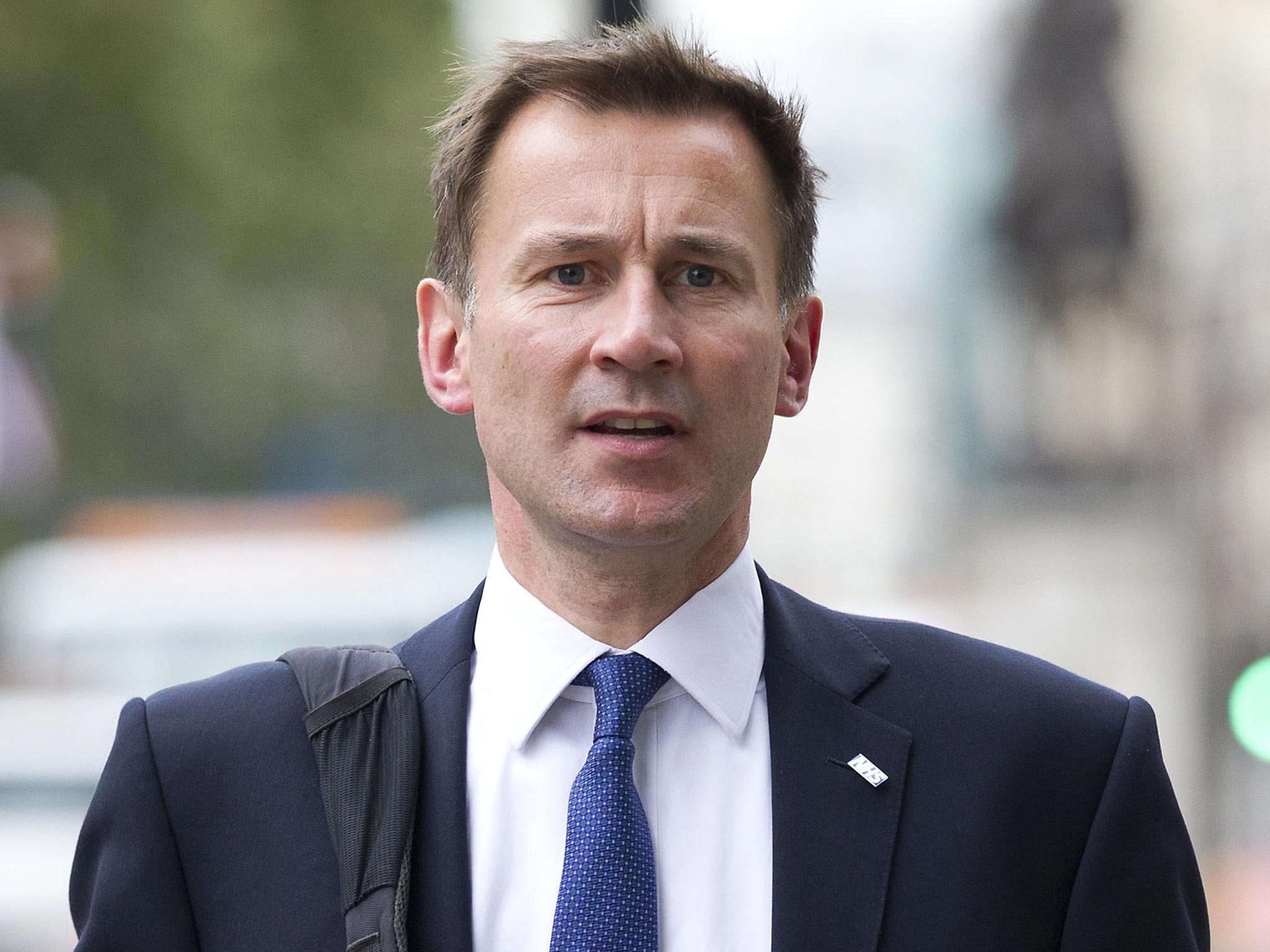Circle Holdings pulls out of NHS contract hours before hospital it ran was rated 'inadequate'
Care Quality Commission highlights 'significant failings' at Hinchingbrooke Hospital

Your support helps us to tell the story
From reproductive rights to climate change to Big Tech, The Independent is on the ground when the story is developing. Whether it's investigating the financials of Elon Musk's pro-Trump PAC or producing our latest documentary, 'The A Word', which shines a light on the American women fighting for reproductive rights, we know how important it is to parse out the facts from the messaging.
At such a critical moment in US history, we need reporters on the ground. Your donation allows us to keep sending journalists to speak to both sides of the story.
The Independent is trusted by Americans across the entire political spectrum. And unlike many other quality news outlets, we choose not to lock Americans out of our reporting and analysis with paywalls. We believe quality journalism should be available to everyone, paid for by those who can afford it.
Your support makes all the difference.The first private company to be put in charge of an NHS hospital has announced plans to withdraw from its contract, hours before inspectors recommended the hospital be placed in special measures because of “inadequate” care.
Circle Holdings plc said its contract to run the Hinchingbrooke Hospital in Huntingdon, Cambridgeshire was “no longer sustainable”, citing 10 per cent funding cuts, “unprecedented increases in accident and emergency attendances” and a lack of care services in the area for people leaving hospital.
However, the Care Quality Commission (CQC) later published a long-awaited report on the hospital, which highlighted “significant failings”, and rated it “inadequate”.
Inspectors said they had encountered instances of patients left without call bells or drinks within reach, and that a lack of paediatric cover left children “potentially unsafe” at times.
Circle said they would now work with the NHS to ensure an “orderly withdrawal” from their contract. The hospital remains open. The Department of Health said there would be “a managed transfer or the running of the trust” and patient care would not be affected.
The announcement marks the end of the most high profile private sector foray into the NHS. Six per cent of NHS funding now goes to private providers, but Circle became the first, and so far only, private company to manage an entire hospital when it won the contract in 2011.
Critics of private sector involvement in the health service said that “the privatisation experiment” had “lamentably failed”.
However, Huntingdon’s MP, Conservative Jonathan Djanogly, said that Circle had done “an exceptionally good job” turning around a hospital which had been previously been described as a “basket case” and had debts of £40m.
The Health Secretary Jeremy Hunt called Circle’s decision “disappointing”.
Circle’s chief executive Steve Melton said that since the contract to run the hospital was tendered in 2009, “the playing field has changed”.
“First, like most hospitals, over the past year we have seen unprecedented A&E attendances – at times up to 30 per cent higher, year-on-year – and not enough care places for healthy patients who await discharge,” he said. “Second, at the same time, our funding has been cut by approximately 10.1 per cent this year.”
Circle had the right to terminate its contract in the event that it was required to pay more than £5m in support payments to keep the hospital running. It has already paid £4.84m into the hospital and Mr Melton said that to “maintain the standards our patients deserve” would require further payments over and above the cap.

He added that Circle expected the CQC’s report to be “unbalanced”, saying that the Hinchingbrooke was not the only hospital to find the CQC’s new inspection processes “problematic”.
Professor Sir Mike Richards, the CQC’s chief inspector of hospitals said that their inspection had uncovered “serious concerns surrounding staffing and risks to patient safety, particularly in the A&E department and medical care”.
A lack of paediatric cover in the A&E department and surgical theatres meant that the care of children in these departments was “at times, potentially unsafe” the report said.
The CQC rates hospitals on five key measures: safety, effectiveness, care, leadership and responsiveness. Hinchingbrooke was rated inadequate for care, safety and leadership: the first time the CQC has rated a hospital inadequate on the care measure.
“Our findings highlight the significant failings at Hinchingbrooke hospital,” Sir Mike said. “They are not a judgment on the role of the private sector in the NHS or on franchise arrangements. Where hospitals are failing to promote good care, we will say so regardless of who owns and runs them."
However, Dr Louise Irvine of the National Health Action Party, which campaigns against privatisation in the NHS, said the case proved “when the going gets tough, the private sector gets going and dumps NHS patients.”
“The privatisation experiment has lamentably failed. The NHS will now have to pick up the pieces,” she said.
Join our commenting forum
Join thought-provoking conversations, follow other Independent readers and see their replies
Comments